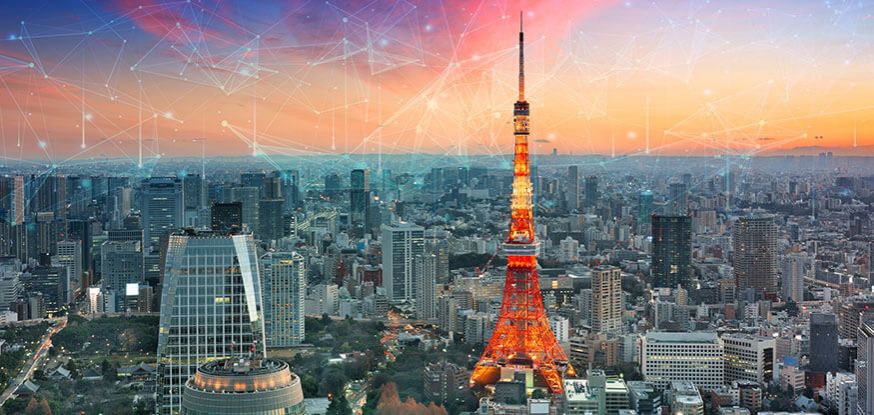Japan’s smart cities market is set to experience remarkable growth, with projections indicating a surge from USD 63.15 billion in 2024 to USD 216.99 billion by 2033, representing a compound annual growth (CAGR) rate of 14.7% during the 2025 to 2033 forecast period, according to research and consulting firm Astute Analytica.
This surge is driven by the rapid adoption of innovative projects, substantial public spending, and significant government investments advancing Japan’s urban future.
Japan’s Leading Smart Cities
Leading the charge to Japan’s smart city revolution are major cities like Tokyo, Kobe, Fukuoka, and Sapporo. Tokyo allocated 350 billion in 2023 for artificial intelligence (AI)-driven traffic management to alleviate congestion at over 2,000 intersections.
Osaka is pioneering next-generation transportation systems and has deployed 750 autonomous e-shuttles on busy routes, while Sapporo tested over 400 sensor-equipped lampposts for real-time snowfall monitoring.
Meanwhile, Fukuoka has enhanced public safety and crowd control with 9,000 high-resolution surveillance cameras integrated with facial recognition technology.
Government Initiatives
The Japanese government has allocated a staggering JPY 1.2 trillion to fund over 12 large-scale pilot projects, focusing on cutting-edge innovations such as Internet of Things (IoT)-enabled water systems, autonomous public transport, and data-driven security applications.
In addition, the country’s national budget includes JPY 40 billion for collaborative projects that align with domestic and international service providers.
To support these strategic initiatives, the Ministry of Internal Affairs and Communications is coordinating with 18 newly formed committees to accelerate the technical standards for universal 5G coverage, enhancing interconnectivity across Japan’s urban areas.
The collective efforts to advance the country’s smarter future is supported by the national government’s strategic vision to deliver 10 additional city-level expansions by 2030, leveraging modern technologies to enhance energy management, digital healthcare, and public security.
Public Safety and Sustainability Efforts
Recognizing the significance of transitioning to cleaner mobility solutions, Japan has launched 39,700 electric vehicle (EV) charging stations across the country to achieve sustainability goals.
Yokohama and Nagoya have begun deploying 14,000 adaptive LED streetlights integrated with motion sensors to adjust light based on foot traffic, while telecom providers have launched 37,000 additional 5G base stations to support autonomous vehicle testing on over 500km highways.
Additionally, over 500,000 privately managed surveillance units were deployed in commercial complexes, while a network of 2,800 cutting-edge weather sensors were rolled out to help local authorities issue rainfall warnings.
Public safety remains paramount, with integrated crime prevention platforms linking neighboring municipalities launched, operating through 700 cross-regional data channels. Demonstrating its focus, Fukuoka’s unified law enforcement leverages AI-driven street surveillance technology to detect suspicious behavior in real time.
Furthermore, the country has deployed 4,200 sensor units to prevent flash floods and landslides, particularly in mountainous regions.
Japan’s Digital Future
Japan’s commitment to innovation is further exemplified by the expansion of quantum computing nodes in five technology incubators. Regulators can integrate advanced backup power modules to 20 large-scale data centers to address the increasing demand for uninterrupted network services.
Advanced cities like Tokyo, Yokohama, and Kawasaki utilize 25 multi-level data centers to operate energy grids, public transportation, and other critical systems.
Meanwhile, developing regions such as Kumamoto and Kanazawa have begun installing 300 microgrid substations to ensure uninterrupted electricity services.
Extended fiber optic networks connecting 60 remote countries to national data hubs and 2,000 locally-run co-working spaces for advanced teleconferencing facilities are also enabled.
To encourage international collaboration, over 15 new contracts have been finalized with foreign technology vendors to advance the country’s smart cities market.
As Japan continues to advance its smart city vision, its strategic initiatives reflect its commitment to creating a technologically advanced, sustainable, and smart future for its residents.

